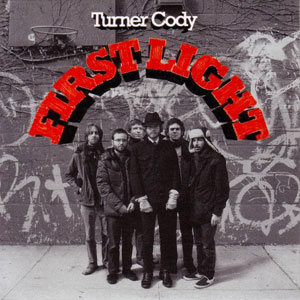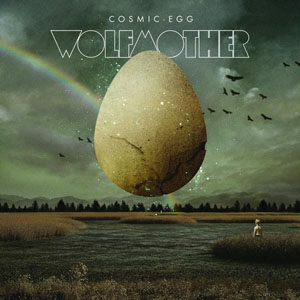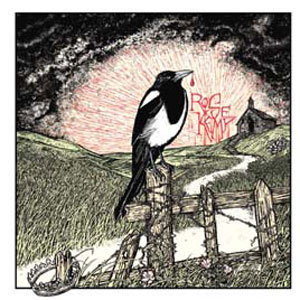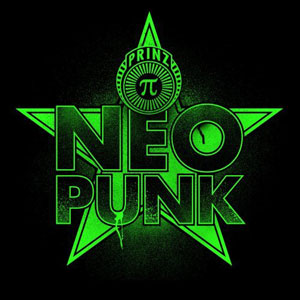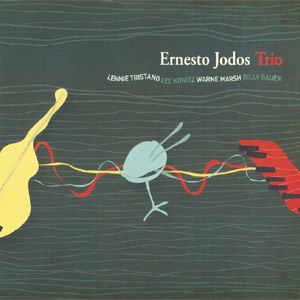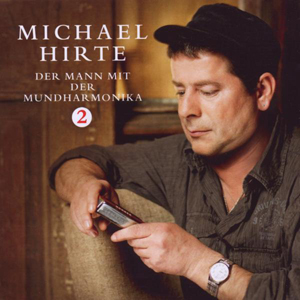|
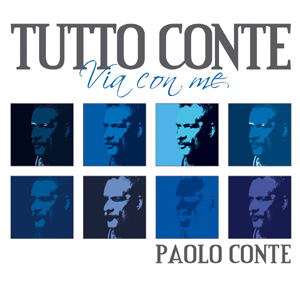
Tutto Conte "Via Con Me" [Pop]
 |
“A gruff smoker’s voice, a piano style that wanders from honky-tonk to tango palace to tony cabaret, and a weathered romantic’s world view have made Paolo Conte a well-known songwriter in Italy.” (The New York Times)
Born in Asti, a small wine-producing town in northern Italy, PAOLO CONTE has held a lifelong passion for jazz and the visual arts since his schooldays. Songwriting started spontaneously, almost instinctively: first he and his brother Giorgio, and then he alone, would write songs inspired by books, films, and the imaginative development of actual experience. He worked for several years as a lawyer. His performing career began on a small scale as a vibraphone player in local and touring bands (Saint Vincent Jazz Festival), with occasional foreign trips (3rd place in the Oslo International 'Quiz').
However, in the second half of the 1960s his compositions drew notice and popular singers began to record his music. For the first time the public heard these strange, unusual songs: “La coppia più bella del mondo” (sung by Adriano Celentano), “Insieme a te non ci sto più” (Caterina Caselli), “Tripoli '69” (Patty Pravo), “Messico e nuvole” (Enzo Jannacci), “Genova per noi” and “Onda su onda” (Bruno Lauzi), and many others.
Paolo Conte’s own recording career began in 1974, with his debut album, Paolo Conte. For the first time, the public heard that languid voice, nonchalantly walking a tightrope of melody, narrating poetic fragments of brief encounters, sudden enthusiasms, and nostalgic recollections. A year later, a second LP was released (also called Paolo Conte) with another collection of songs in the same vein. With these two albums Paolo Conte had made his public debut as a singer-songwriter.
He gained widespread public recognition in 1979 with Un Gelato Al Limon and Paris Milonga, which were presented in 1981 at a special “Conte Day,” organized by the Club Tenco at San Remo. The following year saw the issue of Appunti Di Viaggio, a collection of songs that provided a rich repertoire of concert songs
Paolo Conte entered the limelight again in 1984 with his first CGD recording, an album with the familiar title of Paolo Conte, which received enthusiastic reviews. He followed this release with a series of successful concerts at the Théâtre de Ville in Paris, receiving critical acclaim throughout France. He then ended his tour with sold-out concerts throughout Italy. The enthusiastic atmosphere of this tour was captured on a double live album, titled Concerti released in 1985.
With the release of another double album, Aguaplano, in 1987, Paolo broadened his artistic range, introducing new elements to his work. With the release of Aguaplano, Paolo toured abroad playing in Canada, France, Holland (where he received gold and platinum disks), Germany, Belgium, Austria, Greece and Spain---not to mention two nights at New York's historic Blue Note Club. He also made appearances at many jazz festivals including Montreux, Montreal, Juan les Pins, Nancy etc. Following the tour, a live album (Live) recorded at the Spectrum in Montreal, and a video recorded at Amsterdam's Theâtre Carré was released.
After a short hiatus, Paolo Conte released a new album, Parole D'amore Scritte A Macchina (1990) which introduced a new set of recently composed songs and revealed another side of Paolo Conte, a new musical approach which included backing singers and electronic experimentations. The following album, Novecento (October 1992), marked a return to a more familiar style--vintage Conte, in fact. The experimentations of Parole D’amore had been left aside in favor of a splendid band capable of suggestive echoes of jazz and musicals as commentaries on Conte's famous rhythms, melodies, and lyrics: elegant, seductive or even drunken rhythms lurching into hot jazz, or barroom tangos; music of memories that are half true, half dreams; poetic fragments of colors, images and fantasies.
The importance of Conte's concert performances is shown by the double album Concerti in 1985 and Paolo Conte Live in 1988, as well as two videotapes Nel Cuore Di Amsterdam (1989) and Live In Montreux (1991), then by his 19-track CD called Tournee, a selection of performances recorded live in 1991, 1992 and 1993.
In 1995 he released Una Faccia In Prestito, in which he worked in close collaboration with bassist Jino Touche, percussionist Daniele Di Gregorio, and accordionist and multi-instrumentalist Massimo Pitzianti with contributions on individual tracks from other members of his band. This album possesses the typical elements of the classic 'Paolo Conte song’-- his taste for a pastiche of various styles and periods, the evident pleasure gained from creating fantastic musical texts accompanied by a witty language of unpredictable invention, like the pidgin of 'Sijmadicandhapajiee', or the 'Spanish' of 'Danson metropoli' and 'Vita da sosia'.
The collection The Best Of Paolo Conte was published in Europe in 1996. The 20 songs included in the album make up the first true anthology of Conte’s career: songs which all have a place in the history of the Italian song: “Azzurro”, “Bartali”, “Genova per noi”, “Boogie” and “Via con me”, all interpreted in Conte’s instantly recognisable style. In addition to the better known tracks, some of the author’s favourite are also featured, among which “Colleghi trascurati”, “Max” and “Gong Oh”. In 1998 the collection was released for the first time in the United States under the Nonesuch label, and was followed up by a hugely successful tour (New York, Boston, Los Angeles, San Francisco). The Best of Paolo Conte was voted record of the year by The New Yorker and Rolling Stone.
In 1998 a new live double album Tournée 2 carried on where the previous Tournée album left off, was issued in response to audience’s enthusiastic and repeated requests. None of the tracks on this double album had been previously released as live versions. Tracks such as the instrumental “Swing,” “Legendary,” “Irresistible” (with vocals from Ginger Brew), “Roba da Amilcare,” and “Nottegiorno” appear for the first time on record.
In November 2000, Razmataz was released to critical acclaim in Europe on CD and DVD (with a montage of 1800 drawings by Conte accompanied by music and dialogues). This is a sketch for a musical ‘’revue’’ set in Paris in the 1920s, the meeting place of European avant-gardes and the new black music. Conte has spent the last two years touring Europe with sold-out concerts that include songs from his project, sometimes combined with exhibitions of his drawings.
Paolo Conte returned to the United States again in late February and early March 2001 for a second North American tour playing large concert halls in New York, Washington DC, Boston, Chicago, San Francisco and Los Angeles.
In April 2003, Reveries will be released worldwide – a collection of 16 classic Conte songs, 12 of which have been re-recorded and re-arranged to bring them closer to the performance style of his much-appreciated concerts.
Paolo Conte went back into the studio with all the musicians who had accompanied him around the world on the two-year long “Razmataz Tour”, and recorded 12 new versions of classic songs from his repertoire. The new recordings are interesting for a wealth of reasons. The title track “Reveries”, for instance, is a true masterpiece of a song which had previously only been recorded in a live version for the album Tournée. Conte classics such as “Dancing”, “Diavolo rosso” and “Sud America”, feature new arrangements and allow listeners a taste of how they are often performed during his magical concerts. Versions which differ considerably from those recorded for the albums published in the 1980’s. The album is completed by the addition of four songs taken from Paolo Conte and Novecento. After having been released in the United States, the album was also published in the rest of the world, including Italy.
Nine years after his last album of new songs, Elegia was released in 2004, with 13 new tracks from the Asti singer-songwriter.
October 2008 – Warner Music (Rhino label) releases “Tutto Conte” a best of which features the best hits of this artist ranging from the beginning of his career up to the present.
(Quelle: Warner Music, 2008)
FORMAT: Doppel-CD
Zurück zur Übersicht
|


